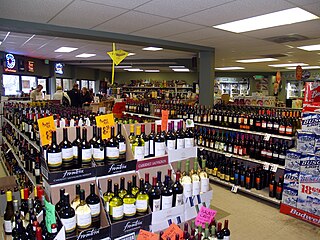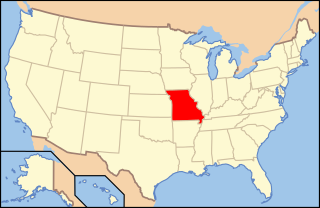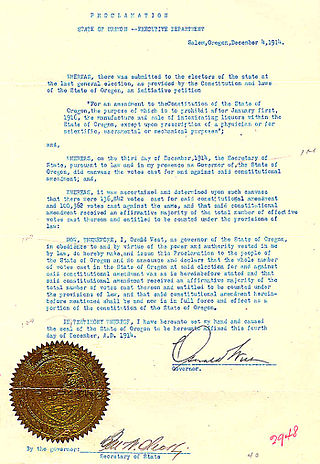| Agency overview | |
|---|---|
| Formed | 1947, consolidated as division under state attorney general. [1] |
| Preceding agency |
|
| Type | law enforcement |
| Jurisdiction | throughout New Jersey, to "supervise the manufacture, distribution and sale of alcoholic beverages in such a manner as to fulfill...the purpose of the Alcoholic Beverage Control law." [1] |
| Headquarters | 140 East Front Street Trenton, New Jersey 08625 |
| Agency executive |
|
| Parent department | Department of Law and Public Safety State of New Jersey |
| Parent agency | Office of the Attorney General |
| Website | http://www.nj.gov/oag/abc/offices.htm |
The New Jersey Division of Alcoholic Beverage Control (Division of ABC or, simply, ABC) is an agency of the government of the state of New Jersey that regulates commerce in alcoholic beverages in that state.
The 21st Amendment to the United States Constitution, which ended the Prohibition, permitted the states to regulate matters related to alcohol. Immediately upon the end of Prohibition in 1933, New Jersey instituted the Alcoholic Beverage Control Law, codified as "Title 33 Intoxicating Liquors" of the New Jersey Statutes, [2] which established the state ABC. [3] These laws are expanded through administrative regulations in Title 13, Chapter 2 of the New Jersey Administrative Code. [4] After New Jersey's 1947 Constitution was adopted and some departments were consolidated, the department was incorporated into the Division of Law and Public Safety under the New Jersey Attorney General's office. [3]
The Division of ABC is headed by a Director, who is appointed by the Governor of New Jersey with the advice and consent of the State Senate. Investigations of violations of the ABC law are conducted by the Alcoholic Beverage Control Enforcement Unit in the Division of State Police which, like the Division of Alcoholic Beverage Control, is within the New Jersey Department of Law and Public Safety under the state attorney general.
In June 2017, State Assemblyman Dave Rible was nominated by Governor Chris Christie to head the department. Rible was confirmed to the position of Director by the State Senate and appointed the following month. [5] [6]

A liquor store is a retail business that predominantly sells prepackaged liquors, wine or beer, usually intended to be consumed off the store's premises. Depending on region and local idiom, they may also be called an off-licence, off-sale, bottle shop, bottle store or, colloquially, bottle-o, liquor store or other similar terms. A very limited number of jurisdictions have an alcohol monopoly. In US states that are alcoholic beverage control (ABC) states, the term ABC store may be used.
Granholm v. Heald, 544 U.S. 460 (2005), was a court case decided by the Supreme Court of the United States in a 5–4 decision that ruled that laws in New York and Michigan that permitted in-state wineries to ship wine directly to consumers but prohibited out-of-state wineries from doing the same were unconstitutional. The case was unusual because the arguments centered on the rarely-invoked Twenty-First Amendment to the Constitution, ratified in 1933, which ended Prohibition in the United States.
Alcoholic beverage control states, generally called control states, less often ABC states, are 17 states in the United States that have state monopoly over the wholesaling or retailing of some or all categories of alcoholic beverages, such as beer, wine, and distilled spirits.

The Delaware Division of Alcohol and Tobacco Enforcement (DATE) is a law enforcement agency of the State of Delaware and is a division of the Delaware Department of Safety and Homeland Security (DSHS).

The Webb–Kenyon Act was a 1913 law of the United States that regulated the interstate transport of alcoholic beverages. It was meant to provide federal support for the prohibition efforts of individual states in the face of charges that state regulation of alcohol usurped the federal government's exclusive constitutional right to regulate interstate commerce.
The Virginia Alcoholic Beverage Control Authority is one of the eleven public safety agencies under the Secretariat of Public Safety and Homeland Security for the Commonwealth. The agency administers the state's ABC laws. ABC stores are the only retail outlets in Virginia where customers may purchase distilled spirits. The profits that Virginia ABC contributes are collected from sales of distilled spirits at ABC stores, taxes collected on beer and wine sales, violation penalties and license fees. Since its establishment in 1934, Virginia ABC has contributed more than $9 billion to the Commonwealth's general fund. Virginia ABC employs more than 4,000 people statewide.

Oklahoma allows any establishment with a beer and wine license to sell beer and wine up to 15% ABV, under refrigeration.

The alcohol laws of Missouri are among the most permissive in the United States. Missouri is known throughout the Midwest for its largely laissez-faire approach to alcohol regulation, in sharp contrast to the very strict alcohol laws of some of its neighbors, like Kansas and Oklahoma.

The alcohol laws of Kansas are among the strictest in the United States, in sharp contrast to its neighboring state of Missouri, and similar to its other neighboring state of Oklahoma. Legislation is enforced by the Kansas Division of Alcoholic Beverage Control.

Alcohol laws of New York are a set of laws specific to manufacturing, purchasing, serving, selling, and consuming alcohol in the state of New York. Combined with federal and local laws, as well as vendor policies, alcohol laws of New York determine the state's legal drinking age, the driving under the influence limit, liquor license requirements, server training, and more.

The U.S. state of Oregon has an extensive history of laws regulating the sale and consumption of alcoholic beverages, dating back to 1844. It has been an alcoholic beverage control state, with the Oregon Liquor and Cannabis Commission holding a monopoly over the sale of all distilled beverages, since Prohibition. Today, there are thriving industries producing beer, wine, and liquor in the state. Alcohol may be purchased between 7 a.m. and 2:30 a.m for consumption at the premise it was sold at, or between 6 a.m. and 2:30 a.m. if it is bought and taken off premise. In 2020, Oregon began allowing the sale of alcohol via home delivery services. As of 2007, consumption of spirits was on the rise while beer consumption held steady. That same year, 11% of beer sold in Oregon was brewed in-state, the highest figure in the United States.

The state laws governing alcoholic drinks in New Jersey are among the most complex in the United States, with many peculiarities not found in other states' laws. They provide for 29 distinct liquor licenses granted to manufacturers, wholesalers, retailers, and for the public warehousing and transport of alcoholic drinks. General authority for the statutory and regulatory control of alcoholic drinks rests with the state government, particularly the Division of Alcoholic Beverage Control overseen by the state's Attorney General.

Alcohol laws are laws in relation to the manufacture, use, being under the influence of and sale of alcohol or alcoholic beverages that contains ethanol. Common alcoholic beverages include beer, wine, (hard) cider, and distilled spirits. The United States defines an alcoholic beverage as "any beverage in liquid form which contains not less than one-half of one percent of alcohol by volume", but this definition varies internationally. These laws can restrict those who can produce alcohol, those who can buy it, when one can buy it, labelling and advertising, the types of alcoholic beverage that can be sold, where one can consume it, what activities are prohibited while intoxicated., and where one can buy it. In some cases, laws have even prohibited the use and sale of alcohol entirely, as with Prohibition in the United States from 1920 to 1933.
The production of beer in New Jersey has been in a state of recovery since Prohibition (1919-1933) and the Great Depression (1929-1945). Currently, the state has 123 licensed breweries: a large production brewery owned by an international beverage company, Anheuser-Busch InBev, and 122 independent microbreweries and 19 brewpubs. The growth of the microbreweries and brewpubs since the 1990s has been aided by the loosening of the state's licensing restrictions and strict alcohol control laws, many of which were a legacy of Prohibition.

The production of distilled spirits in New Jersey has not been a large industry in the state. Strict alcoholic beverage control laws in place during and after Prohibition (1919–1933) prevented the industry from growing for almost a century. In 2013, the state passed a law creating a craft distillery license. and issued the first new distillery license since Prohibition to Jersey Artisan Distilling.
New Jersey is home to the most complex alcohol laws in the United States. They provide 29 liquor licenses to wholesalers, manufacturers, retailers and the general public.
The New Jersey Farm Winery Act was legislation passed by the New Jersey state legislature and signed by Governor Brendan Byrne in 1981. The Farm Winery Act was the first of several efforts by the New Jersey state legislature to relax Prohibition-era restrictions and craft new laws to facilitate the growth of the alcoholic beverage industry and provide new opportunities for winery licenses. Before it was enacted, New Jersey provided only one winery license for each million residents and licenses were practically impossible to obtain. By 1981, New Jersey boasted only seven wineries. By 1988, that number had doubled to 15. As of 2014, New Jersey currently has 48 licensed and operating wineries with several more prospective wineries in various stages of development. New Jersey wineries produce wine from more than 90 varieties of grapes, and from over 25 other fruits.
The alcohol laws of Maine regulate the sale and possession of alcohol in the state of Maine in the United States. Maine is an alcoholic beverage control state.